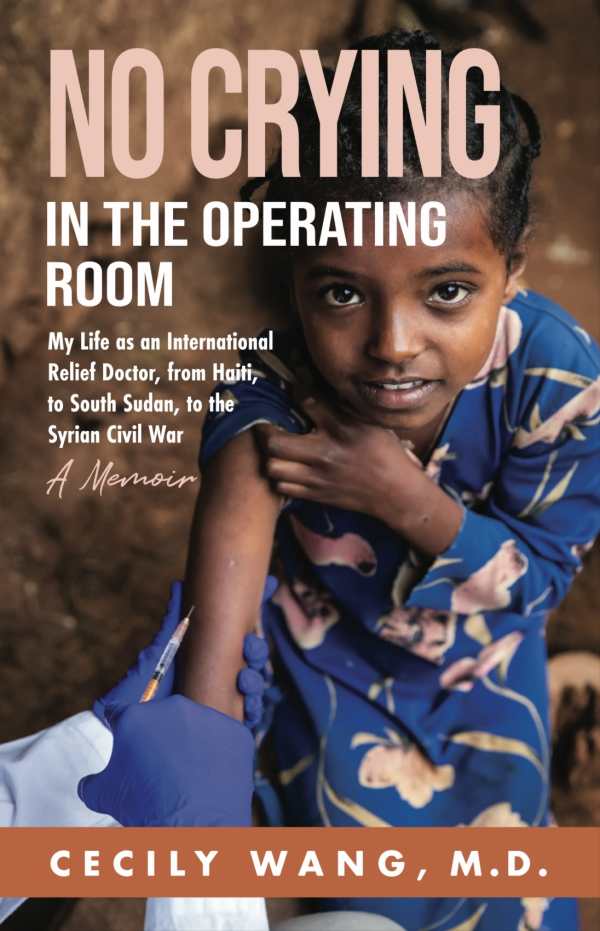No Crying in the Operating Room
My Life as an International Relief Doctor, from Haiti, to South Sudan, to the Syrian Civil War
No Crying in the Operating Room is an intimate surgeon’s memoir that issues a passionate call for health-care reform in the United States.
Physician Cecily Wang’s memoir-cum-exposé No Crying in the Operating Room delineates problems with modern medicine as it’s practiced in the United States.
Wang was born in Taiwan, and her family moved to San Francisco when she was eight years old. Her stay-at-home mother encouraged her to be creative. Although Wang exhibited a talent for drawing early on, she also loved math and science. She grew up feeling “weird”; her idea of fun was reading the encyclopedia or working on a trigonometry proof, which infuriated her mother, leading to physical violence. Still, she persisted and became a trauma surgeon working in developing countries.
Chapters about her early upbringing are interspersed with scenes of Wang at work. Her first international mission to Haiti in 2006 was life-changing; it made her think differently about health care in the United States. Further experiences in South Sudan, Myanmar, and Syria widened her understanding of patients’ cultural attitudes toward pain management and death, which are called more realistic elsewhere than they are in the US. The book notes that instead of expecting medical miracles and a pain-free recovery, patients are often satisfied abroad if a doctor does their best; many people, it says, accept some discomfort as a part of life.
To illustrate its points and to convey the urgency and chaos of a medical unit, the book includes graphic depictions of medical procedures under conditions of deprivation, as when Wang used a lens popped from her glasses to repair a bullet wound to a patient’s head, saving the patient’s life. Indeed, there is a lot of blood throughout. On occasion, the text also includes unexplained medical jargon that impedes general comprehension.
Coupled with Wang’s field memories are exhortations for changing the US’s medical system. Wang argues that medical practices in US hospitals too often prioritize metrics and profit. Instead of giving immediate care to patients, the book notes, doctors often have to wait for insurance paperwork to be processed. The book also addresses problems of overwork, a lack of communication, and rampant mental health issues, including naming Wang’s physician friends who died by suicide.
Wang’s experiences as a doctor during COVID-19’s outbreak bring the book up to date, while her attempts to understand her late mother return its focus to the personal realm, helping to make No Crying in the Operating Room an intimate surgeon’s memoir that issues a passionate call for health-care reform in the United States.
Reviewed by
Suzanne Kamata
Disclosure: This article is not an endorsement, but a review. The publisher of this book provided free copies of the book and paid a small fee to have their book reviewed by a professional reviewer. Foreword Reviews and Clarion Reviews make no guarantee that the publisher will receive a positive review. Foreword Magazine, Inc. is disclosing this in accordance with the Federal Trade Commission’s 16 CFR, Part 255.

